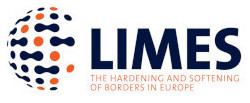Educational Borders: Multilingualism or Not
Research and Methodology
Marie’s PhD project delves into the dynamics of participation among children and teachers in the context of linguistic diversity in Early Childhood Education and Care (ECEC). It is based on linguistic ethnographic fieldwork in two ECEC centers situated on either side of the German-Dutch border. The ECEC centers each have their own linguistically diverse character with different family languages, the national languages German or Dutch and, in the Dutch case, the regional language Limburgish all being present. During her research, Marie generated audioand video recordings of naturally occurring interaction and complemented these with participant observation to gain a holistic understanding of children’s participation. The main focus of the analysis was on language education policy and the ways in which children used language creatively and agentively in shaping interactions.
Relation to Borders
The choice of two field sites on either side of the German-Dutch border provided an interesting lens on children’s participation through language practices in ECEC. Throughout the project, it became clear that childhood experiences, daily interactions, and language socialization at ECEC can unfold in very different ways, depending on the side of the border where a child grows up. Taking a slightly broader approach to borders, the project also dealt with questions of borders emerging when coconstructing knowledge with children as an adult researcher.
Findings and Takeaways
The project’s findings underscore the complex and dynamic nature of children’s participation in linguistically diverse ECEC environments on both sides of the German-Dutch border. Participation unfolds relationally linked to other children’s and teachers’ actions and the material and ideological environment of the ECEC center. As such, it interweaves with evolving language education policies. These language education policies are constantly shaped in every-day interaction, leading to different forms of children’s participation. For example, children in Dutch Limburg understand when their teachers use the regional minority language Limburgish to mark a personal chat between teachers. The children might then, e.g., initiate other interactions. Conversely, when teachers intend their remarks to be overheard by the children, particularly when praising the children, they switch to the national language Dutch, indicating collective significance. Children may orient to this cueing through active listening and silent participation. In addition, children also actively engage with different social meanings of languages through negotiating them in interaction with peers and, notably, with Marie as a researcher during the study.
PhD thesis defence date: 29/02/2024
Researcher: Marie Rickert (see profile)
Supervisors: Leonie Cornips, Christine Arnold, Gunther Devogelaer (see profiles)
